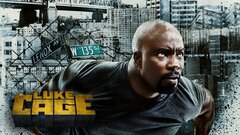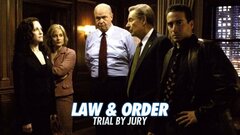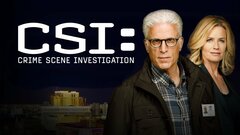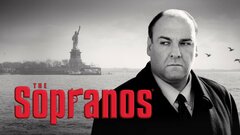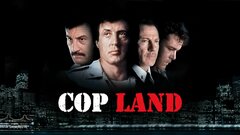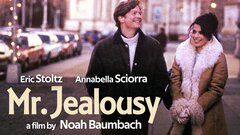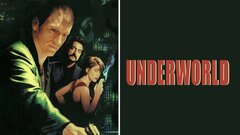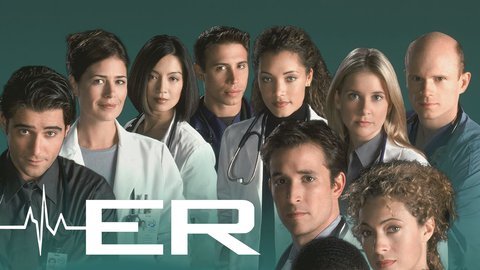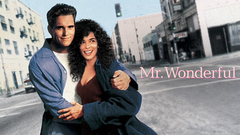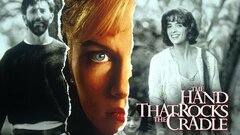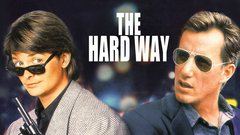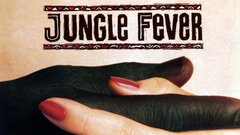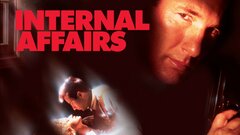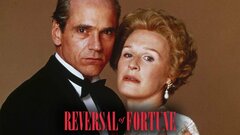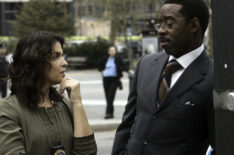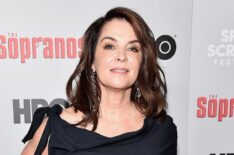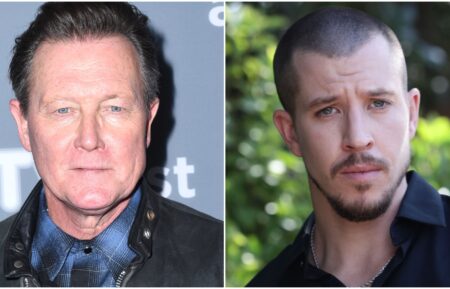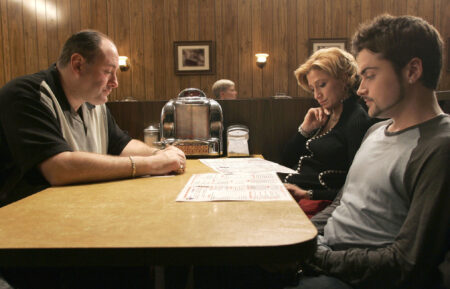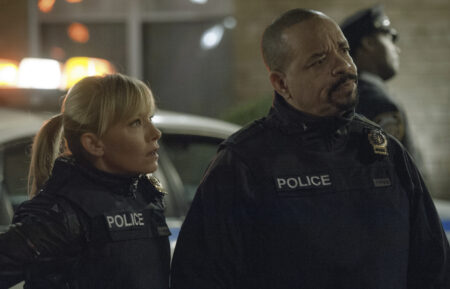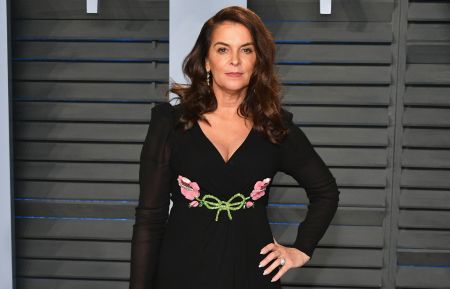Annabella Sciorra briefly achieved leading lady status in the early 1990s, undertaking a dangerous dalliance in Spike Lee's "Jungle Fever" (1991) and suffering the torments of psycho-nanny Rebecca De Mornay in "The Hand That Rocks the Cradle" (1992).
Coming of age in Brooklyn, NY, Sciorra began earning screen parts in the late 1980s, turning in a comedic performance in the breezy comedy "True Love" (1989). She would score her big break as the working class Italian-American secretary hooking up with her African-American boss (Wesley Snipes) in Lee's examination of the social dynamics of interracial relationships In "Jungle Fever." It vaulted her to bigger parts in such films as "Whispers in the Dark" (1992) and "The Night We Never Met" (1993), but she would plateau into supporting roles and largely unheralded indie fare, often cast as put-upon paramours in a run of crime films highlighted by "Romeo is Bleeding" (1993) and "Cop Land" (1997).
She veered into television in 2001 as an obsessive saleswoman involved with tough-guy Tony Soprano on "The Sopranos" (HBO, 1999-2007), and would go to short TV stints, playing a detective on "Law & Order: Criminal Intent" (NBC, 2001-07; USA, 2007-11), and a shrink on "Mental" (Fox, 2009). Throughout the 2000s, Sciorra kept her hand in off-Broadway theater, and made her Broadway debut in 2011 opposite Chris Rock in "The Motherf--ker With the Hat."
She was born Annabella Gloria Philomena Sciorra on March 29, 1960 or 1964 (sources differ) in Wethersfield, CT, outside Hartford, the daughter of Italian immigrants Enrico and Anna Sciorra.
Her father worked as veterinarian; when Annabella was 11, he took a job with the Department of Agriculture's New York City office and moved the family to Brooklyn. Annabella became a self-professed theater geek, dreaming of starring in the Broadway shows she saw as a kid, and at age 13, she began taking acting lessons on weekends at the Uta Hagen and Herbert Berghof's HB Studio.
She attended Brooklyn's South Shore High School, and after graduating in 1978, was accepted into New York's prestigious American Academy of Dramatic Arts. She graduated in 1980 and founded a repertory group, the Brass Ring Theater Company, to stage independent productions, but followed the well-worn path of the struggling actor, waitressing and at one point working as a coat-check girl at a tony French restaurant. By the end of the decade, however, she had landed an auspicious first job opposite Sophia Loren, playing the legend's daughter in the NBC miniseries "The Fortunate Pilgrim" (1988).
On a personal front, things continued on an upturn the next year with Sciorra's nuptials to fellow actor Joe Petruzzi; professionally her turn as a flustered, second-guessing bride-to-be in the romantic comedy "True Love" (1989), brought her a nomination for an Independent Spirit Award.
It would open the door to some significant supporting parts in big-budget studio films. She appeared as a young legal eagle in the true crime tale of Klaus and Sunny Von Bülow, "Reversal of Fortune" (1990); an unfaithful wife sending on-screen husband Tim Robbins on an armed rampage at a seedy car dealership in the Robin Williams vehicle "Cadillac Man" (1990); and the girlfriend of a hardboiled cop (James Woods) beset by a hotshot Hollywood actor (Michael J. Fox) studying him for a part in "The Hard Way" (1991). Fellow Brooklynite Spike Lee would vault Sciorra into the leading lady stratum, casting her in his nervy 1991 film "Jungle Fever," in which he examined the dynamics of interracial relationships in the heated, tribalistic climate of contemporary New York.
Sciorra played an Italian-American temp from Bensonhurst who begins a torrid relationship with her married African-American boss (Wesley Snipes) which sends violent ripples through their respective families. Though the film drew mixed reviews over Lee's sometimes disjointed storytelling, Rolling Stone cited Sciorra's "luminous performance," infusing her character with "a poignancy that pierces the heart." Her star ascendant, she would win leads again in a pair of psychological thrillers, Curtis Hanson's "The Hand That Rocks the Cradle" (1992), a dark horse hit in which she played one-half of seemingly idyllic couple who discover their new nanny (De Mornay) to be a scheming psychopath, and "Whispers In the Dark" (1992), which saw her as a psychiatrist caught in an amorous (and murderous) triangle.
She also won some romantic comedy leads in 1993, starring opposite Matthew Broderick in "The Night We Never Met" and Matt Dillon in "Mr. Wonderful." Back in a supporting role, she played the long-suffering wife of a wildly corrupt cop (Gary Oldman) in the neo-noir thriller "Romeo is Bleeding" (1993). She and Petruzzi would divorce in 1993, and also that year, she landed a high-profile off-Broadway job in celebrated playwright David Rabe's "Those the River Keeps," though it would be greeted with bad reviews.
In 1995, Sciorra signed on with indie director Abel Ferrara for his gritty vampire yarn "The Addiction," which spun vampirism as a seedy underworld equivalent to drug culture, and she helped produce and starred in his follow-up, the mob drama "The Funeral" (1996), both films co-starring Ferrara regular Christopher Walken. Her career leveled into a regimen of indie films, as with the AIDS-themed drama "The Cure" (1995), crime thrillers "The Innocent Sleep" (1996) and "Underworld" (1996), comedies such as "Little City" and two offbeat outings for indie auteur Noah Baumbach, "Highball" (1997) and "Mr. Jealousy" (1997).
She returned to Ferrara's repertory with his eerie dystopian sci-fi outing "New Rose Hotel" (1998). What work cropped up for her in major studio productions would largely come in the form of small but poignant supporting roles, as in James Mangold's urban drama "Cop Land" (1997) and the Robin Williams-starring Dante-esque fantasy "What Dreams May Come" (1998). In 1999, she landed work with the edgy Naked Angels theater company's production of "Shyster," starring alongside Phyllis Newman and Fisher Stevens, beginning a semi-regular presence in the off-Broadway circuit that would see her in high-profile productions of "Roar" in 2004 and "Spain" in 2007 for MCC Theater. In features, she continued with low-budget crime outings in "Once in the Life" (2000), co-starring and directed by Laurence Fishburne, and "Above Suspicion" (2000), and she co-starred with Stevens again in the indie feature made from his script, "Sam the Man" (2001).
But a new career tack would land her back on a national stage, as HBO came calling with a new character for its groundbreaking Mafia series "The Sopranos." Sciorra joined the show's third season as Gloria Trillo, the sultry, unabashedly sensual saleswoman for a high-end car dealership who flirts her way into a torrid affair with mob honcho Tony Soprano (James Gandolfini). The Trillo arc turned dark as Tony discovered Gloria to be unstable and was eventually forced to deflect her obsessive behavior with violence.
In spite of Gloria's demise, Sciorra had wet her feet enough in television to take on her own project, anchoring the CBS law drama "Queens Supreme," playing a New York judge. The mid-season series boasted an enviable cast that included Robert Loggia and Oliver Platt, but the show opened to scathing reviews and CBS pulled the plug after airing only three episodes.
She did some movie-of-the-week-type projects as reflected in the titles, "The Madam's Family: The Truth About the Canal Street Brothel" (CBS, 2004) and "Identity Theft: The Michelle Brown Story" (Lifetime, 2004).
And she returned periodically to indie features, most notably in Sidney Lumet's final film "Find Me Guilty" (2006), the story of a famous New Jersey Mafioso (Vin Diesel) who defended himself in court, with Sciorra turning in a mesmerizing, kinetic performance in a single scene as Diesel's ex-wife. In 2006, she picked up a cast role as a New York detective on one of Dick Wolf's continuum of police procedural dramas, "Law & Order: Criminal Intent," teaming with longtime series denizen Chris Noth, but left after a season. In 2007, Sciorra took recurring stints on Showtime's lesbian-themed drama "The L Word" (2004-08) and NBC's long-running "ER" (1994-2009), and she landed another cast job as a sober supervisor of a psychiatric staff on the short-lived Fox drama "Mental," which only lasted half a season in 2009.
In spring 2011, Sciorra made her Broadway debut along with Chris Rock in renowned playwright Stephen Adly Guirgis's comedy "The Motherf--ker With the Hat," starring with her onetime real-life love interest Bobby Cannavale, and playing wife to Rock as the AA sponsor and buddy counseling Cannavale's recently sprung ex-con.






